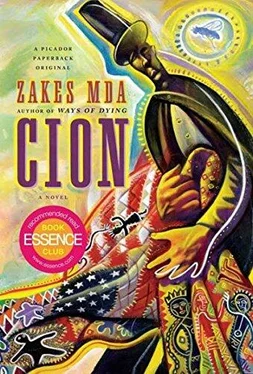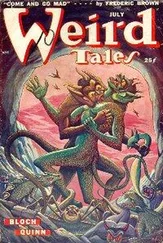The peculiar smell is the smell of history. Like Obed’s sycamores, this pile of worn fabric on Ruth’s metal table is a carrier of memories.
The story is told by the earthy scent of the quilts.
The story is told that the wizened old woman taught mothers never to love their children. She walked from cabin to cabin dispensing her wisdom. Because her message must be infused through the veins of the earth, the sciolist even makes her walk from plantation to plantation, silent as the air we breathe, without attracting the attention of the owners. Mothers eagerly lapped up her words, for they knew the dire consequences of loving. Those who were weak enough to love in spite of themselves received special lessons on how to cease confusing love with ownership. Invariably they failed to appreciate the fine distinction and ended up regretting that they loved at all. Some women imbibed the lessons so well that they went beyond just not loving their children; they developed a deep hatred for them. They hated them for being the children who could not be loved. If they had had the power they would have strangled them in the womb.
Sometimes lessons failed and the wizened one resorted to concoctions that she brewed in her cabin. Concoctions that she had learned from those who learned them from the shamans of the old continent, generations before. She gave them to pregnant mothers to harden their hearts so that they would be immune from loving what was growing in their bodies.
Men could be loved, but with caution. It was that kind of an age. They too could not be possessed by those who were weak enough to love them. Once more, don’t mix things up: love and ownership are two separate notions. They would be here today and gone tomorrow. But there would be others. The auction block would provide. Or a woman may be fortunate enough to find one from the domestic stock. From those who had been bred to procreate and feed the insatiable markets. Men and women did not abjure what came naturally even though they knew that the unions they formed would be fragile. They continued to manufacture babies despite the ever-threatening dangers of loving them.
David Fairfield was The Owner. He had a better remedy for love…much more effective than the wizened one’s. He was a compassionate man, so he devised a strategy of saving the women from the pain of loving their children. The midwives were given strict instructions that the birthing mothers should never be allowed to see their newborns, let alone touch them. As soon as the babies came out of the passage of life they were whisked away to a communal nursery. At feeding time mothers were not given their own babies to breastfeed. Mothers therefore never got to know which babies were theirs, in the same way that they never got to know who the fathers were. The Owner made certain that there was a rotation of studs — the well-bred young men whose most important function was to impregnate the women to populate the plantation with the future generations that would meet the demands of the auction block.
Nicodemus and Abednego were children who could not be loved.
First came Abednego. They called his mother the Abyssinian Queen, even though none of her forebears ever set foot in Abyssinia. The first of them in the new world had been captured from the mouth of the Kongo more than a century before. She did not know that. The Kongo man’s family tree was chopped down successfully after a generation or two and no one knew anything anymore.
She was the Abyssinian Queen — black like a moonless night with dark clouds hiding the stars. Yet her big white teeth beamed sunrays into people’s hearts, leaving them melting.
Her face was round and smooth. So was her belly. It radiated life: there is nothing as beautiful as a pregnant stomach. The fullness of the moon. Gleaming stretch marks like moonscape rivers. In the folk tales that were told when work was done and fires were roaring the sun was king and the moon was queen. Perhaps that is why they called the woman a queen, for the sobriquet started only when she was sashaying in voluminous dresses, with Abednego kicking in her body.
In her case the father of the child was known, for he never allowed any rotation to take place on top of the Abyssinian Queen. She was his and his alone. Of course he never acknowledged the child. It was an age when some children were destined never to be acknowledged by those fathers who prided themselves on being pillars of the community.
The Abyssinian Queen cleaned the big house and took care of the acknowledged children. She provided friendship and companionship to the lady of the house. When work was done she took care of the needs of The Owner, providing him with alternative warmth during those long winter nights. To facilitate this last task of the day she was allocated a comfortable room adjoining the big house, and did not consort with those who lived in the cabins and toiled in the fields. Her duties were to the family and the hawk-eyed Owner.
The Owner had to be vigilant because he knew the kind of shenanigans property was capable of getting up to behind the master’s back. He had seen it all when he was growing up at his father’s plantation in Fredericksburg, Virginia, decades before.
Charles Fairfield, David’s father, had determined quite early on that slave children were a more profitable crop than tobacco or cotton or corn, especially after the 1808 abolition of the foreign slave trade. Since the Fairfields — then famous in all the South as slave traders of repute — could no longer import slaves from Africa and the West Indies, they decided to start their own slave breeding farm to meet the growing needs of labor in the thriving plantations of the South.
The Fairfield operation in Fredericksburg was quite rudimentary. The breeding process was not formalized or planned in any scientific manner. Children happened when they did and were sold just before they reached their teens. Shenanigans were not discouraged for it was from them that new stock would come. Rather than discourage them, Charles participated in them with gusto.
There was a lot of inbreeding. But the senior Fairfield never gave any thought to its implications, nor was he bothered by the possibility that he was sire to some of the mulatto teenagers he bedded.
Mulattos were highly priced, as long as they were not so light in complexion as to be mistaken for whites. So, the senior Fairfield was eager to have more of them at his plantation. He used to organize binge parties to which students from a nearby college were invited and let loose among the females, which helped in the production of more mulatto children.
David Fairfield started his own adventures with slave girls in his early teens. By the time he got married in his mid-twenties to a beautiful debutante from a neighboring plantation he had become so addicted to black pussy that his daddy feared it would jeopardize the marriage. And it did. After only two years the wife decided that she could not share him with property anymore and divorced him.
He was an enterprising sort. Whereas his siblings were content with inheriting the plantation and continuing with business as usual, he trekked to the west across the Allegheny Mountains and settled in the Putnam County of his home state of Virginia where he bought a small plantation with his portion of the inheritance. It was more of a farm, really, although its occupants ambitiously called it a plantation. He had observed as his train of wagons and oxen and horses and slaves crossed the Appalachians that in this region there were no real plantations. There was therefore a new type of slavery where slaves worked for families as farmhands — quite different from the grand plantation slavery he had been used to in the eastern part of Virginia from which he had emigrated.
Читать дальше












